Does my doctor know me? Local health providers take steps to accommodate LGBTQ+ patients.
NEW BEDFORD — While the world continues to learn how to fully and respectfully embrace the LGBTQ+ community, there is still a ways to go — especially in the health care world.
But now doctors and health centers in the SouthCoast are taking steps to remedy these issues.
In a USAToday article, citing that LGBTQ-inclusive health care is still not ‘mainstream’, LGBTQ community members spoke out about uncomfortable encounters stemming from assumptions about sexual orientation and gender identity to the gendered language in hospitals.
In a viral TikTok, user @haleyfaulkner posted a version of an interaction with her doctor, garnering more than 900,000 likes and 6.3 million views, in which a doctor scolds her for being sexually active, but for not using any preventive measure such as condoms or birth control.
“So then how are you preventing pregnancy,” said the doctor, to which Faulkner responds, “I’m gay.”
According to HumanRightsCampaign.org (HRC.org), a 2022 survey consistently showed that many lesbian, gay and bisexual patients aren’t open about their sexual orientation with health care providers.
In a recent survey, one in four LGBTQ people reported experiencing discrimination, while 8% of lesbian, gay and bisexual adults and 29% of transgender adults reported that a health care provider refused to see them because of their sexual orientation or gender identity.
A survey by the National Center for Transgender Equality found that 33% of respondents had experienced a negative interaction with a health care provider because of their gender identity in the year prior.
More:'If you're older, you're just plain afraid': How SouthCoast advocates are helping LGBTQ+ elders
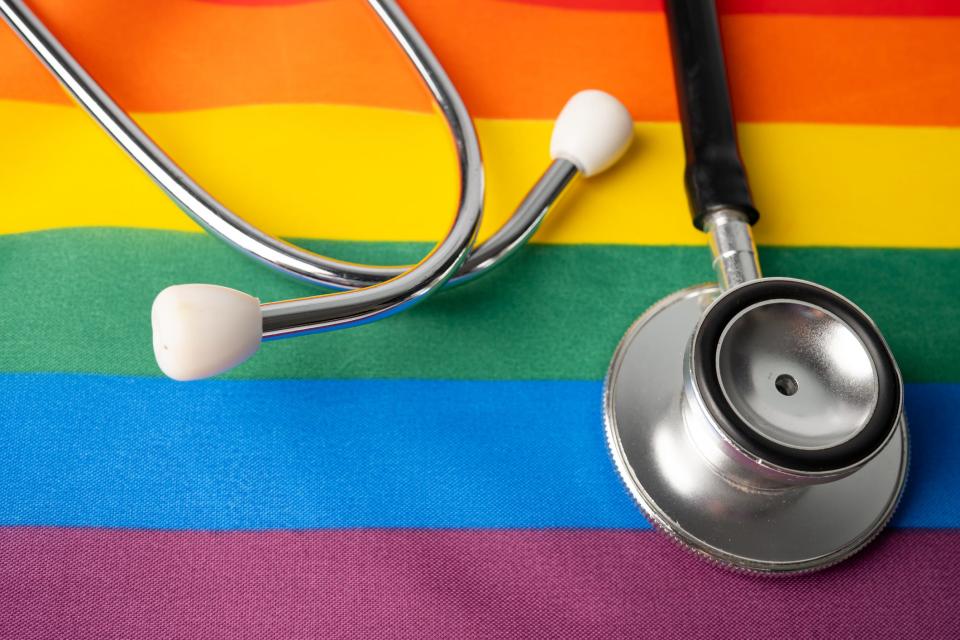
SouthCoast LGBTQ+ community shares similar experiences
Andy Pollock, president of the SouthCoast LGBTQ+ Network, said he was taking PrEP, a daily medicine that can reduce the chance of getting HIV, when a staff member at a dermatologist clinic automatically assumed it meant he was HIV-positive.
Kenneth Poretti of Dartmouth said he diagnosed himself with a potential STD that his doctor didn’t know about.
Jess Trilling said she was dealing with severe migraines until she discovered that a doctor who had prescribed her something, but shouldn’t have, because she was also taking hormone-blockers (which was identified clearly in her chart).
It’s these types of stories that members of the LGBTQ+ community have shared with one another on social media, that have made patients worry, too, if their doctors know how to fully help them with their care.
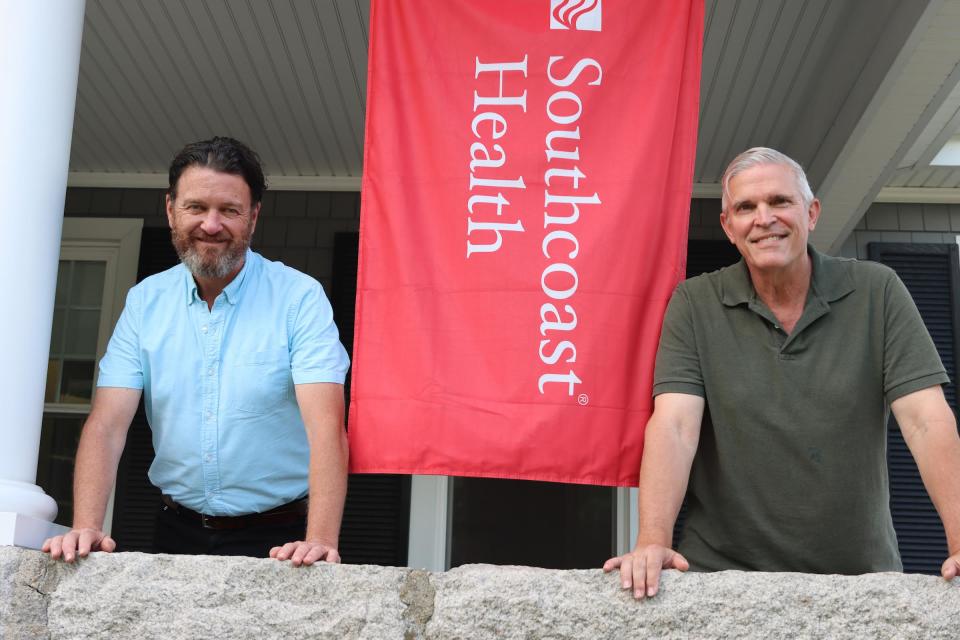
One of the ways to make members of the LGBTQ+ community comfortable is to have primary care offices specifically for LGBTQ+ patients.
In Providence, Opendoor Health provides comprehensive primary care and sexual health services, including HIV primary care and gender-affirming care. Patients who arrive know that by stepping through the door, they are already identified and can feel comfortable discussing their sexuality with trained staff members.
New training required for the medical world
Other tips, provided by HRC.org to finding the best healthcare provider include asking for referrals from other members of the LGBTQ+ community, inquiring by phone if the practice has other LGBTQ+ patients, bringing a trusted friend to accompany them to the first appointment or asking your doctor for a few minutes to chat while you’re still fully clothed — maybe even before you’re in the exam room.
However, within the past few years, hospitals and primary care facilities have taken steps to also make sure members of the LGBTQ+ feel just as comfortable and respected by their staff.
More:Fairhaven restaurant introduces SouthCoast to its first robotic serving assistant
Dr. Jay Lawrence, Southcoast Health chief innovation officer and physician in chief, Primary Care, said medical journals continue to be updated with more and more discoveries each day, and now there is a movement to adding LGBTQ+ care into the mix everywhere.
“Health care is incredibly complex. It's the most complex industry,” he said. “With that awareness, we're now channeling that into education and into altering our model of care delivery to account for the critical components of who our patients are, and the community that they are from.”
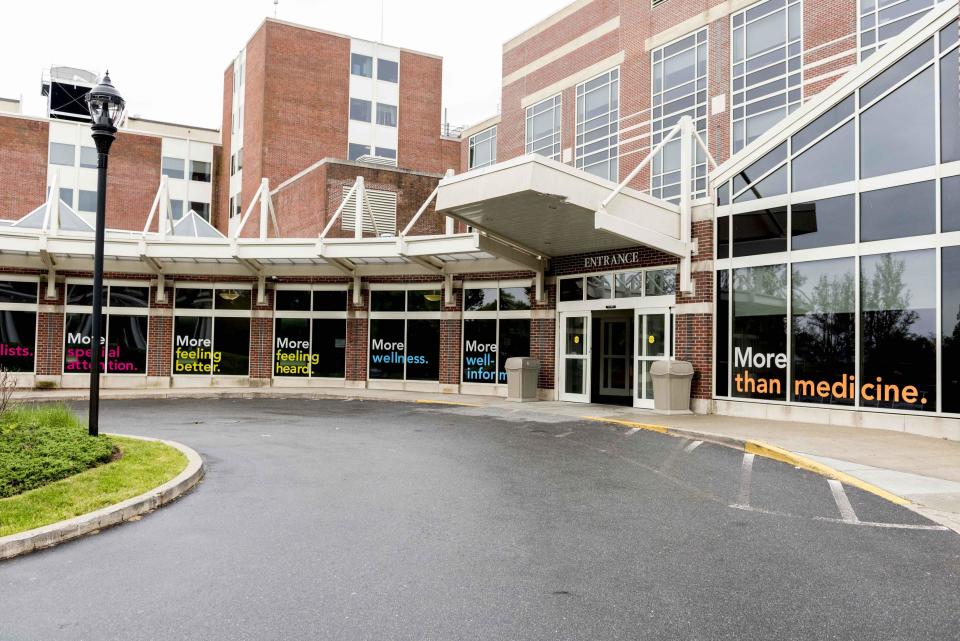
Lawrence said that with more training, the staff can start doing things the right way, and then when others start to become champions on these topics, they can teach others around them, too.
“But the first step is always the intention. And I can say we have the intention in spades. We're going, we're manifesting and we're doing stuff,” Lawrence said.
Retooling medical record apps and forms
In 2018, Southcoast Health set a goal to actively support and embrace a welcoming and inclusive environment in which all individuals are treated with respect and dignity as soon as they walk through the front door.
After launching their “You Are Welcome Here” campaign in 2019, they formed the diversity, equity and inclusion council in which employees meet monthly.
One of their major focuses is referred to as 3PS (Pronouns, preferred names and policies), which focuses on the support of the LGBTQ community, employees and patients.
LGBTQ+ Healthcare provider
Dr. Annalise Boisvert, an obstetrician and gynecologist at Hawthorn Medical, is labeled also as a LGBTQ+ Healthcare provider for her special training in medical needs of LGBTQ persons including hormone management, health screenings, birth control and trans-sensitive fertility support.
'We're glad to be here today': New Bedford launches Pride Month with flags, songs and more
“I transitioned about a year into being an attending [in 2017], so it's kind of as far back as I remember. Now I think people sort of automatically trust you when they come in and they feel very open,” she said. “And I try to be very approachable in general, about any subject.”
Boisvert said having patients being able to feel comfortable acknowledging themselves as part of the community goes a long way in helping with their health services. For example, knowing someone’s sexual experience may determine the difference between an abrasion versus an infection.
Knowing there is mutual trust with your doctor
“Knowing the dynamics of the relationship, knowing the ins and outs and and just tailoring it to the person and their relationships, being open and honest, and not having to hide things or feel like you're gonna get judged makes a difference to their overall care,” she said.
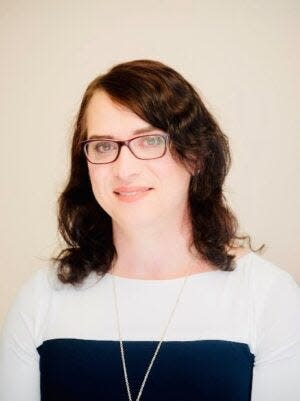
“There are statistics that show that there is an increased risk for certain STDs for people in our community that are active," she said, adding another example recalling a doctor making assumptions that there was no need to consider any domestic abuse issues for a lesbian couple.
“When in actuality, I mean, they're the same. The same care needs to be taken that you're looking at it as if it's an equal relationship,” Boisvert added.
Celebrity sightings: New Bedford's brushes with fame in 2022
Born in Tennessee, Boisvert said she kept her sexuality a secret from her conservative Baptist father and Italian Catholic mother until they both passed away in 2001 and 2013, respectively.
“The SouthCoast is moving in a wonderful direction for the LGBTQ community,” she said. “It’s a great place to live and be a part of this community to feel safe, and be able to find providers you’re comfortable with and can provide a plethora of providers.”
However, there is still room to grow, especially when the entire medical field isn't there yet.
“Sometimes you need to put down things like legal names and things like what anatomical things are actually called. So there needs to be a little understanding on both sides, obviously, that we still need to call parts something,” she said.
“But it’s all about how respectfully it’s handled and understood.”
Understanding the culture, leads to better healthcare
Dr. Kevin R. Gendreau, a board certified physician, obesity medicine specialist, and primary care doctor in the SouthCoast, said it’s essential for a healthcare provider to have some degree of understanding when treating LGBTQIA+ individuals.
For example, as a weight loss physician, he said he has a number of patients who were born in Haiti and eat very traditional Haitian cuisine. As a result, their intake of processed carbohydrates, starches and refined sugars is often higher than average.
"I have to take into consideration their culture as part of my individualized wellness plan. As a community, LGBTQIA+ individuals have higher rates of suicide, depression, anxiety and substance abuse," he said.
"Healthcare providers also need to be assessing sexual orientation and gender identity in order to conduct appropriate screening practices," he added.
Gendreau said, as another example, a pre-op transgender male will still require routine pap smears and gynecological evaluations. "The mental and physical health of our community depends on healthcare professionals becoming knowledgeable about these issues," he added."
Gendreau said he has also experienced a number of verbal and microaggressions as an LGBTQIA+ physician.
"There have been several instances of judgmental statements from patients, colleagues, and administrators upon learning that I am a member of the LGBTQIA+ community,'" he said.
Recently, he had an interaction with a patient during a tele-visit in which she cried upon learning he was gay and begged him to “find Jesus,” and practice abstinence.
"I, in turn, begged her to tell me how this had anything to do with her type II diabetes," he said.
Respecting pronouns and names
Last August, Southcoast Health launched a program with its medical records systems that now lists pronouns, sex assigned at birth, sexual orientation, gender identity and legal sex that reflects acts as an option and affirming steps that someone might be taking during a transition.
Barbara Schmidt, director of Organizational Culture and Engagement at Southcoast Health and chair of the Diversity, Equity and Inclusion Council said that even a patient can say what they want printed on their wristband and on specimen labels.
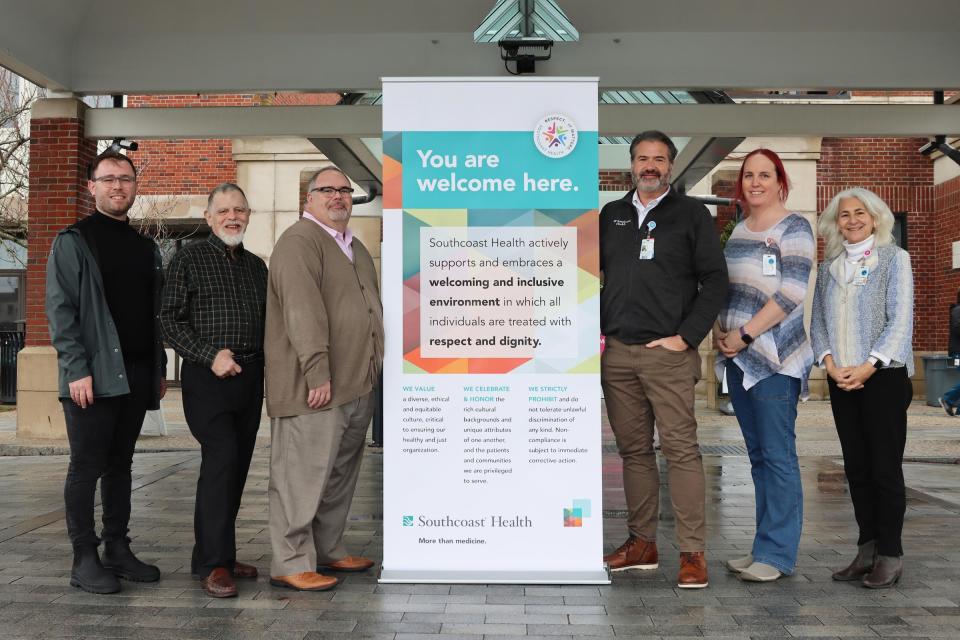
“It's so many considerations, we spent a lot of time on a style guide to gender neutralize, if you will, the letters that are in the communications that we send out,” she said.
The 7,300 employees also took mandatory LGBTQIA+ Care training classes through Fenway Health. “We started the training journey to go hand in hand with the ability to ask for SOGI [Sexual Orientation and Gender Identity Unit] information as a starting point,” said Chuck Cusson, head of Leadership and Education.
Cusson, who also identifies within the LGBTQ+ community, said when it comes to LGBTQ+ care, the training helps the staff open their minds to additional preventive care to consider such as blood transfusions, prEP, or when an annual pap smear is appropriate for a patient.
'People have had a hankering for it':Council president brings back a New Bedford favorite
“Everyone's really kind of winging it as a collective. And we're putting that information together on resource pages for our employees and for our clinicians,” he added.
Last June, Cusson stepped in as chair of Southcoast Health’s new LGBTQIA+ Employee Resources Group (ERG). This latest addition to Southcoast Health’s ERGs includes employees who bring thought and leadership to important social and employee concerns.
“We're starting where we can and we will continually socialize this to be able to trigger follow up questions, so that if we see that there are additional questions that we could ask that we can,” he said.
Open to learning from patients
Allison Lambert, RN educator at Southcoast Health, said after 28 years in health care she is still learning from her patients and they should be comfortable advocating for themselves.
“I think that as we become a more knowledgeable center, patients feel a warm welcome,” she said.
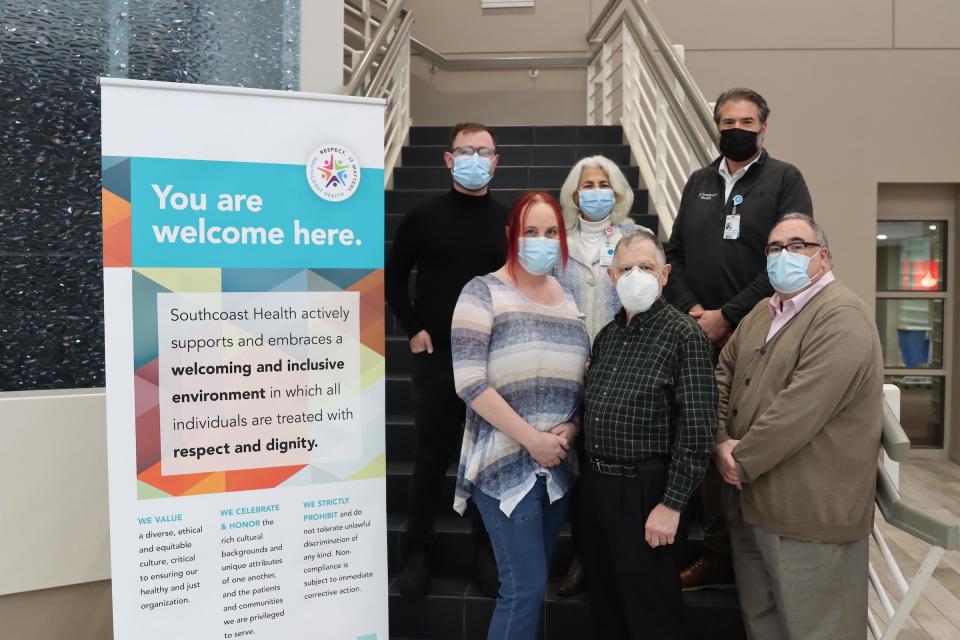
Recently, Lambert said she has a pediatric patient with a chronic condition she never heard of, so the patient’s parents are teaching her a lot about this condition. “I think we constantly rely on each other, both as people in healthcare and our patients to help us come along,” she said.
Extending a hand:Queer Arts Council of New Bedford is ready to be even 'more out there' in 2023
“The ultimate goal for us is to make patients in the LGBTQ community feel confident that they can come here and discuss their issues.”
Schmidt added that not all doctors are required to know everything, but there's enough knowledge to know when to seek other help.
Doctors affiliated with LGBTQ+ health care
Within the next two to three years, Southcoast Health’s goal is to offer tools to connect patients with specific doctors that deal in LGBTQ+ healthcare. In 2023, Schmidt said they will be unveiling a new campaign, “We Ask Because We Care.”
“We're trying to take care of our patients better by having more knowledge about them,” she said. “We want to learn and then help them the best we can.”
Standard-Times staff writer Seth Chitwood can be reached at [email protected]. Follow him on twitter: @ChitwoodReports.Support local journalism by purchasing a digital or print subscription to The Standard-Times today.
This article originally appeared on Standard-Times: Doctors share new steps to accompany LGBTQ+ patients
